How to make an app: LIFE CYCLE OF MOBILE DEVELOPMENT
Mobile applications are improving our lives – we have an app to order food, hail a taxi, pay bills, and even walk a dog. If you have a brilliant idea for your mobile app startup, you are probably wondering how how to make an app? Is it difficult to create an app? In fact, the mobile app development process consists of several stages that are not so obvious at first glance.
In this article, we explain the main stages of the app development process.
After reading, you can start preparing the required documents, and you’ll know how to reply if a business analyst asks you to explain how your app will work.
Let’s start our successful app idea journey!
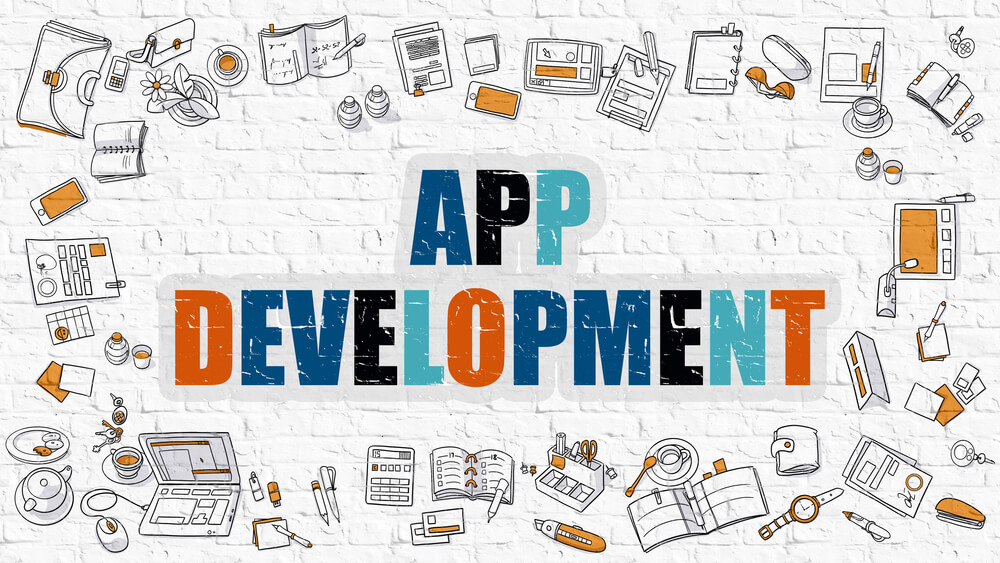
HOW TO CREATE AN IPHONE APP THE RIGHT WAY FROM THE VERY START
Step 1. Launch the inception phase
So how to make an app? First of all, you need to describe your business app idea to the development team. This is what happens during the discovery phase, one of the milestones for mobile app development. During this stage, you and your mobile app development company will clarify all the details of your future project.
To enter the discovery phase, you need to prepare the following:
-
Business app idea
-
Project descriptions
-
App mockups
In addition, the project inception phase requires a bunch of documents from the development team, described in the image below.
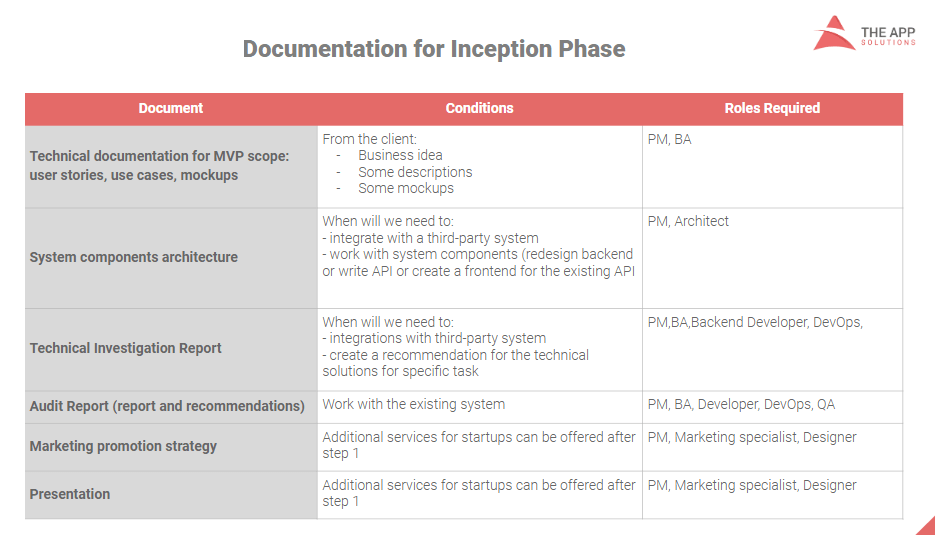
HOW TO CREATE A COST-EFFECTIVE APP FOR YOUR BUSINESS
During the discovery phase, the team will explore and elaborate on the concept of your app. Then, based on your app type, the team will define the scope of your project and technical solutions to implement. The main goals of this phase are:
- Specify your requirements
- Examine the project feasibility
- Identify the app MVP scope
Now that the project’s scope and requirements are defined, you and your development team enter the next phase of creating a mobile app.

HOW TO FIND AND HIRE APP DEVELOPERS: GETTING IT RIGHT
Step 2. Create a phone app’s Technical documentation
Also known as a technical specification or software documentation, this paper is a manual of your product with outlining requirements and business logic.
The document will include everything starting from an intro, the purpose of the app, all definitions of technologies to be used, testing to be done, timeframes, budget, and even concerns or doubts. This part is continuous throughout the entire development period.
HOW MUCH DOES IT COST TO DEVELOP AN APP: DETAILED FEATURE BREAKDOWN
To create Technical Documentation, our team conducts the following activities:
- Keeping ongoing dialogue with the client to identify the number of app users (buyer, seller, admin)
- Suggesting ways in which the project can be implemented
- Determining the main functions of the app
- Elaborating the level of requirement granularity
- Suggesting the interface structure
- Identifying the app architecture, i.e., types of interactions between the systems and subsystems
After making technical documentation, the development team agree on it with the client and estimate the project’s scope and cost. Now that all requirements are clarified and user stories are written, the team will do functional decomposition to break user stories down to particular functions, prioritize them, and create a mobile app development project plan. Such a plan will include essential features to add to the app MVP and features to implement next.

BUILDING COMMUNITY APPS: HOW TECHNOLOGIES CAN BRING US TOGETHER?
Step 3. Build a phone app prototype
Creating an app prototype is one of the steps to making an app that will meet your business needs. At this stage, our team uses project requirements and technical documentation from the previous steps to build an app prototype. In this way, you will experience the app flow and give feedback on whether the prototype meets your expectations. To create the app prototype, our team do the following:
- Creating a sketch – the very first and draft version of your app on paper that sets up significant aspects – logics, number of screens, and the way they interact with each other;
- Creating wireframes – provides the visualization of the draft app structure;
- Creating a clickable prototype – helps to find out and analyze all possible use cases, discover logical breaks and technical inconsistencies in the original idea;
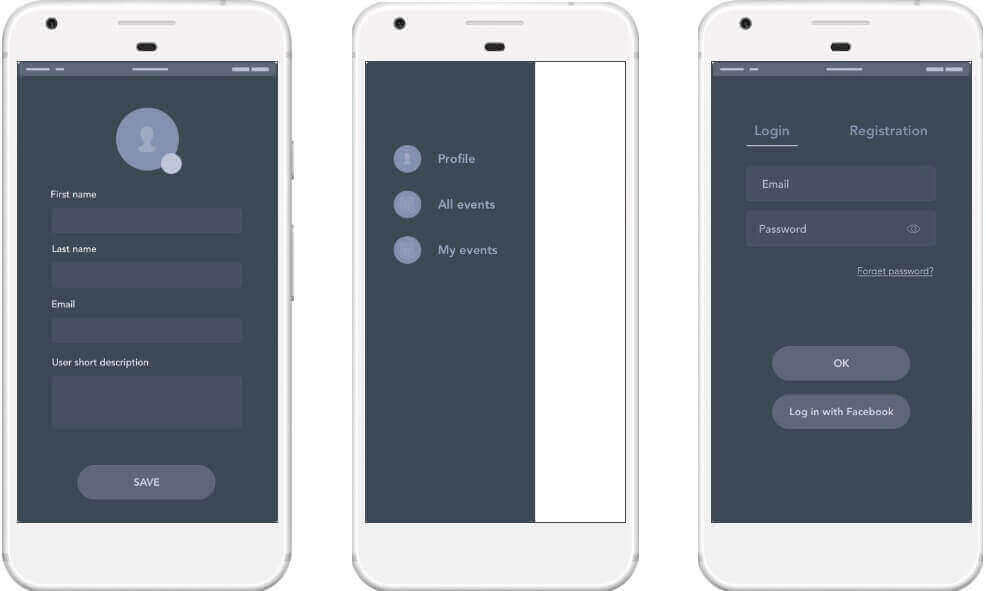
[The APP Solutions app prototype example]
- Designing app skins/final design – collecting all wireframes and putting these together to get the final design.
Now that the prototype is ready, the team will approve it with you and enter the next stage.
HOW TO ESTIMATE BASIC EXPENSES FOR ANDROID OR IOS APP DEVELOPMENT
Step 4. Build the app design
Using an app prototype from the previous stage, UX/UI designers will create the design of each screen for your app. During this stage, the team will agree with you on how the app should feel and flow. Here, designers will develop:
- The layout of app navigation
- Icons
- Buttons
- Text fields
- And other visual elements
Depending on your project’s complexity, the mobile app design creating stage might take from one week to three months.
At the end of developing a design for a mobile app, you will receive:
- UX wireframe
- Separate app designs for iOS and Android platforms
- An interactive app design prototype.

WHY SOFTWARE-AS-A-SERVICE BUSINESS NEEDS A MOBILE APP?
Step 5. Start app development
Now the team will start the next phase of the app development life cycle, during which they will create:
Front-end – in other words, client-side development, that is about tools and techniques used to create a presentation layer of the software for direct user interaction with it;
Backend/cloud storage-a server/database part of coding and maintaining a technology that connects the front-end part of the app with the data access layer.
To create the app for iOS, developers use:
- Objective-C
- Swift
- Python
As for Android apps, they will use:
- Java
- Android Native Development Kit (NDK)
- Kotlin
- React-native
- Firebase
During the development stage, one of the steps to developing an app, we provide clients with project updates. In this way, we assure work transparency and make sure the developers are on the same page as the client.
The cost of mobile app development depends on app complexity. If you want to estimate your app, use our project cost calculator.

Step 6. Test mobile app
Now that the app is ready, the development team conducts testing, which is one of the steps to building an app. Our testers and QA managers conduct the following tests:
- Compatibility testing – running the app on different devices and screen sizes;
- Interface testing – checking the navigation, menu, and button performance;
- Device compatibility testing- how the app looks and performs on various screen sizes;
- Low-level resources testing – examining the app running on low battery, slow Internet connection, etc.;
- Security testing – quality assurance of sensitive data safety;
- Beta testing – preliminary focus-group examination of the app and getting feedback.
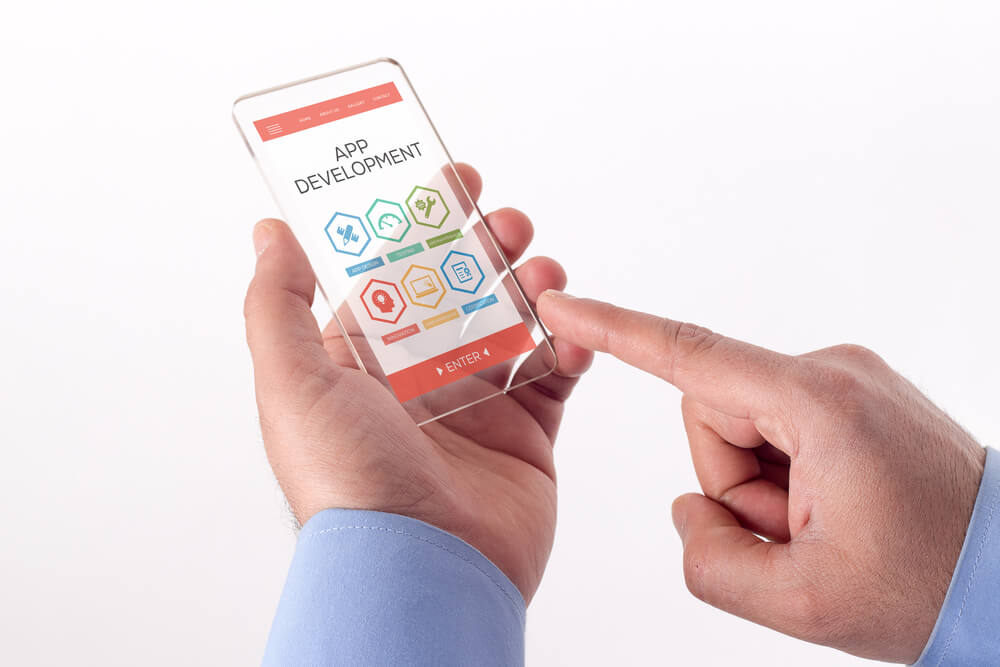
6 KILLER DESIGN TIPS FOR YOUR APPS
Step 7. Deploy the app to marketplaces
Now that the process of creating an app is finished, it is time to deploy the app to the app market, but before doing this, you need to make the app compatible with app marketplace requirements. To give you an idea of what those requirements are, we have gathered them below:
| Prepare Android app for Play Market | Prepare iOS app for Apple app Store |
| Here is Google’s official checklist to get your app ready for a successful launch on Google Play Store:
| To release your app on the App Stores, you should do the following:
|
You also need to consider that mobile apps marketplaces charge fees for the app upload.
- Apple App Store fee of $99/year
- Google Play has a one-time fee of $25
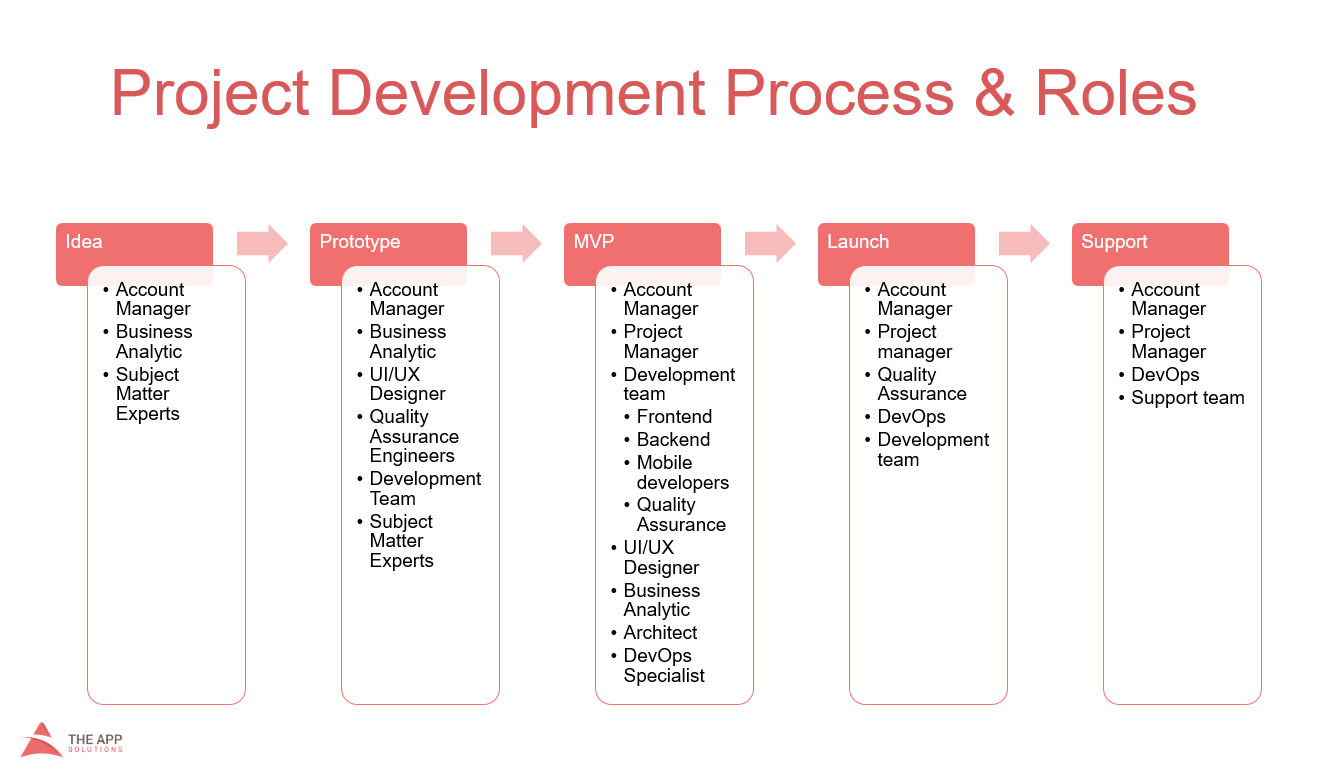
[Mobile app development process: steps and dev team members]
Download Free E-book with DevOps Checklist
Download NowIn a nutshell
The app development process includes more than the design and code creating steps. At the very beginning of your project, your own app development team should create thorough technical documentation, functional requirements, and user stories.
Now that you know how to build a phone app, the last thing that remains is to hire a development team to turn your idea into reality.
What solutions can we offer?
Find Out More
